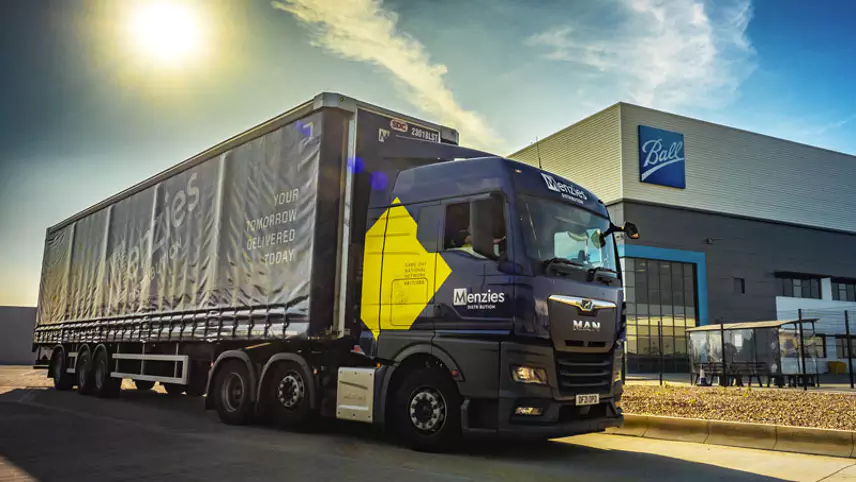A new collaboration between Ball Beverage Packaging and Coca-Cola Europacific Partners (CCEP) has been announced in the United Kingdom, which will see the testing of vehicles running on a blend of hydrotreated vegetable oil (HVO).
A year-long experiment to reduce the amount of greenhouse gas emissions in the supply chain began last October. This project is expected to reduce emissions by approximately 300 tons per year. For this, a combination of HVO and diesel fuel will be used in about 5,000 deliveries to the CCEP site located in Wakefield, West Yorkshire, UK. This project is supported by logistics partner Menzies Distribution, one of Ball’s allies in the United Kingdom.
HVO is a renewable and alternative fuel source. The benefit of using HVO is that, if fully adopted, it can reduce the transportation-related carbon footprint in the supply chain, from production to delivery to the end customer, by up to 90%. It can be used as the main fuel in vehicles or combined with diesel to improve CO2 emissions, without the need for changes to the existing engine or additional vehicle maintenance.
One option for storing HVO, a type of alternative fuel to diesel, would be to blend it with diesel in local tanks. In this way, HVO could be provided in an equivalent proportion and CO2 emissions could be reduced. This is especially relevant in the energy and diesel sector where the aim is to reduce the environmental footprint.
In March 2023, Ball, a leading company in the packaging industry, announced its new Climate Transition Plan. This plan describes how the company will evolve towards a fully circular and carbon-free business, with the aim of better serving its stakeholders and offering solutions that help improve the environment. The incorporation of HVO fuel is one of the steps taken to achieve the decarbonization targets set by Ball.
Ball Beverage Packaging EMEA Vice President of Integrated Business Planning Tom McCarthy expressed his enthusiasm for collaborating with Coca-Cola Europacific Partners on a significant project. Reducing emissions in transportation is a top priority for the company, from can manufacturing to final delivery. Working together with customers and suppliers throughout the supply chain, measures are being taken to achieve the sustainability objectives set.
In Europe, HVO vehicles are gaining importance in the beverage industry. Currently, they can already be found in different Ball locations in France and Sweden, while the company is working on future projects in countries such as Spain, Italy, Austria and Switzerland.
By 2022, CCEP (Coca-Cola European Partners) has implemented the use of alternative fuels in about 8% of the kilometers driven by its carriers in Europe. The company is working to increase this percentage and is currently using hydrotreated vegetable oil (HVO100) in countries such as Great Britain, Germany, the Netherlands, Spain and Sweden.








